HSLS offers classes on database searching, software applications such as Adobe Photoshop, bibliographic management, molecular biology and genetics, and library orientations. For more information visit the online course descriptions.
Classes are held on the first floor of Falk Library (200 Scaife Hall) in classroom 1 and conference room B, and on the second floor in the Computer and Media Center classroom 2.
All classes are open to faculty, staff and students of the schools of the health sciences at the University of Pittsburgh and University of Pittsburgh Medical Center (UPMC).
Some classes are also held in the Conference Room at UPMC Shadyside Libraries for UPMC Shadyside physicians, staff, and students.
No registration is required for any of these classes. Seating for classes is first-come, first-served, until the class is full. Classes marked with an asterisk (*) qualify for American Medical Association Category 2 continuing education credit. Class schedules are subject to change. Please consult the online class calendar for the most current information.
HSLS ORIENTATION
Introduction to HSLS Resources and Services at Falk Library
(Meet inside entrance to Library)
Offered upon request to groups or individuals. Call 412-648-8796.
Introduction to HSLS Resources and Services at UPMC Shadyside Libraries
Offered upon request to groups or individuals. Call 412-623-2415.
SEARCHING DATABASES
PubMed Basics*
Tuesday, July 14 1-2:30 p.m. (Falk Library Classroom 1)
Tuesday, July 14 3:30-5 p.m. (Conference Room at UPMC Shadyside Libraries)
Tuesday, August 11 9:30-11 a.m. (Falk Library Classroom 1)
Searching EBSCOHost CINAHL* (Falk Library Classroom 1)
Tuesday, August 4 11a.m.-12:30 p.m.
MOLECULAR BIOLOGY AND GENETICS RESOURCES
Pathway Analysis Tools I* (Falk Library Conference Room B)
Wednesday, July 8 1-3 p.m.
Pathway Analysis Tools II* (Falk Library Conference Room B)
Wednesday, July 15 1-3 p.m.
Microarray Data Analysis* (Falk Library Conference Room B)
Wednesday, July 29 1-3 p.m.
DNA Analysis Tools* (Falk Library Conference Room B)
Wednesday, August 12 1-3 p.m.
SOFTWARE TRAINING
EndNote Basics (Falk Library Classroom 2)
(Note: This class is usually full. Please arrive 15 minutes in advance to ensure seating.)
Wednesday, July 8 1-3 p.m.
Thursday, July 23 10 a.m.-noon
Thursday, August 13 10 a.m.-noon
Adobe Photoshop for Beginners (Falk Library Classroom 2)
Thursday, July 9 10 a.m.-noon
Thursday, August 13 10 a.m.-noon
PowerPoint for Beginners
Thursday, July 16 10 a.m.-noon (Falk Library Classroom 2)
Tuesday, August 4 11:30 a.m.-1:30 p.m. (Conference Room at UPMC
Shadyside Libraries)
PowerPoint for Beginners and Advanced PowerPoint (Falk Library Classroom 2)
Thursday, August 27 10 a.m.-2 p.m.
The WOW Factor: PowerPoint for Posters (Falk Library Classroom 2)
Tuesday, July 7 10-11:30 a.m.
LUNCH WITH A LIBRARIAN
These informal, brown-bag lunches are held in Falk Library Conference Room B. Bring your own lunch. Drinks and dessert are provided. For more information, visit the online descriptions.
CME for Free!
Thursday, July 9 Noon-1 p.m.
It’s Good to Share: Collaboration Made Easier with Web-Based Tools
Wednesday, July 22 Noon-1 p.m.
Thursday @ Three Library Information Series
These informal sessions are held in UPMC Shadyside Libraries’ Conference Room.
Searching for Nursing Articles using CINAHL
Thursday, July 16 3-4 p.m.
The Search for Evidence: Locating Evidence-Based Health Care Information
Thursday, August 13 3-4 p.m.
CUSTOMIZED CLASSES
Customized classes can be developed for your department, course, or other group.
LEARNING @ YOUR PACE
These online tutorials provide information on getting started at HSLS, focusing on the Web site and popular resources.

 Pat Bookamyer, administrative assistant in the Health Sciences Library System’s (HSLS) Office of the Director, retired from the University in April after almost 20 years. In her role as administrative assistant, she utilized her many skills in support of the Director and the operation of HSLS. Bookamyer also volunteered to serve as HSLS United Way representative for 19 years.
Pat Bookamyer, administrative assistant in the Health Sciences Library System’s (HSLS) Office of the Director, retired from the University in April after almost 20 years. In her role as administrative assistant, she utilized her many skills in support of the Director and the operation of HSLS. Bookamyer also volunteered to serve as HSLS United Way representative for 19 years.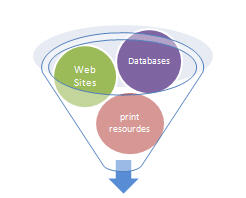 There are many reasons why finding measurement tools is so challenging. These range from copyright restrictions to publisher limits on the number of pages allotted to each article, preventing publication of lengthy tests or questionnaires. Similar to statistics, testing instruments are seemingly everywhere and yet, in practice, nowhere to be found!
There are many reasons why finding measurement tools is so challenging. These range from copyright restrictions to publisher limits on the number of pages allotted to each article, preventing publication of lengthy tests or questionnaires. Similar to statistics, testing instruments are seemingly everywhere and yet, in practice, nowhere to be found!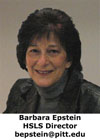 Like most other academic programs, libraries use measurements or rankings to compare with others in their peer group. In our case, we consider our peer group to be academic health sciences libraries serving the top ten NIH-funded research institutions. In 2007-08, the latest year for which we have comparative library statistics*, these top ten institutions were (1) Harvard University, (2) The Johns Hopkins University, (3) University of Pennsylvania, (4) University of California, San Francisco, (5) University of Washington, (6) University of Pittsburgh, (7) UCLA, (8) Duke University, (9) University of Michigan, and (10) Washington University in St. Louis.
Like most other academic programs, libraries use measurements or rankings to compare with others in their peer group. In our case, we consider our peer group to be academic health sciences libraries serving the top ten NIH-funded research institutions. In 2007-08, the latest year for which we have comparative library statistics*, these top ten institutions were (1) Harvard University, (2) The Johns Hopkins University, (3) University of Pennsylvania, (4) University of California, San Francisco, (5) University of Washington, (6) University of Pittsburgh, (7) UCLA, (8) Duke University, (9) University of Michigan, and (10) Washington University in St. Louis.

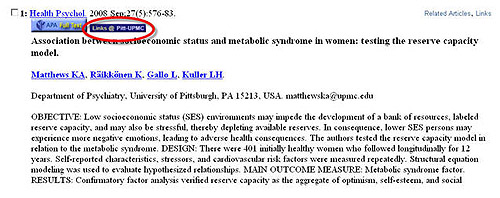 A new Web page will open that displays the article citation. Directly below the citation information you will see one of two options. One option allows you to access the full-text article by clicking on the name of the journal publisher.
A new Web page will open that displays the article citation. Directly below the citation information you will see one of two options. One option allows you to access the full-text article by clicking on the name of the journal publisher. Alternatively, you may be given a link to
Alternatively, you may be given a link to 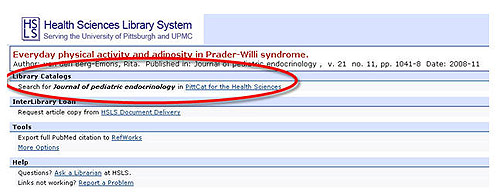 Clicking the PITTCat link launches a journal title search in PITTCat. Within the PITTCat search results, click on the full title link for the journal to access the electronic version or to find information about the location of the print version. If Pitt libraries do not subscribe to the journal, you will receive the message “PITTCat found no records that matched your search.”
Clicking the PITTCat link launches a journal title search in PITTCat. Within the PITTCat search results, click on the full title link for the journal to access the electronic version or to find information about the location of the print version. If Pitt libraries do not subscribe to the journal, you will receive the message “PITTCat found no records that matched your search.”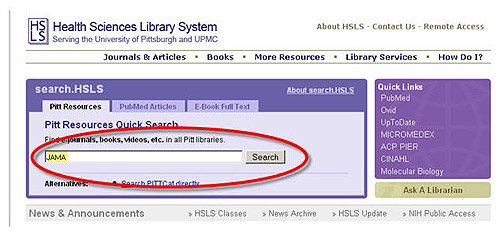 This runs a keyword search in PITTCat. Electronic resources available from HSLS will be listed in a highlighted box at the top of your search results, and will include links to the fulltext. Other search results (for University Library System resources or HSLS print resources) will appear further down in your search results and contain links to the PITTCat record.
This runs a keyword search in PITTCat. Electronic resources available from HSLS will be listed in a highlighted box at the top of your search results, and will include links to the fulltext. Other search results (for University Library System resources or HSLS print resources) will appear further down in your search results and contain links to the PITTCat record.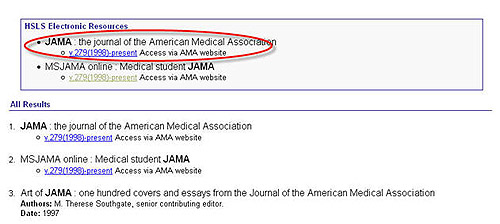 Alternatively, you can search for the journal title using PITTCat’s traditional search interface. On the
Alternatively, you can search for the journal title using PITTCat’s traditional search interface. On the 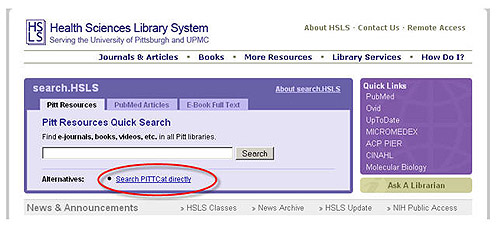 In the traditional PITTCat search interface:
In the traditional PITTCat search interface: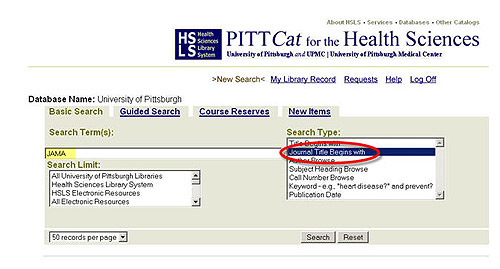 Within the PITTCat search results, click on the full title link for the journal to access the electronic version or to find information about the location of the print version. If Pitt libraries do not subscribe to the journal, you will receive the message “PITTCat found no records that matched your search.”
Within the PITTCat search results, click on the full title link for the journal to access the electronic version or to find information about the location of the print version. If Pitt libraries do not subscribe to the journal, you will receive the message “PITTCat found no records that matched your search.”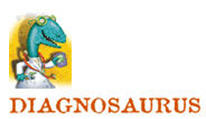 Diagnosaurus is AccessMedicine’s “differential diagnosis tool for the ages.” Diagnosaurus provides differential diagnoses (DDx) of symptoms, signs, and diseases. You can choose to view entries by organ system, a list of symptoms only, a list of diseases only, or all of the entries. For instance, if you are reviewing the causes of a patient’s chief complaint, choose the symptom or sign from the alphabetical listing. If you have already diagnosed your patient, but are wondering what else you might consider, select your diagnosis from the list to see its DDx.
Diagnosaurus is AccessMedicine’s “differential diagnosis tool for the ages.” Diagnosaurus provides differential diagnoses (DDx) of symptoms, signs, and diseases. You can choose to view entries by organ system, a list of symptoms only, a list of diseases only, or all of the entries. For instance, if you are reviewing the causes of a patient’s chief complaint, choose the symptom or sign from the alphabetical listing. If you have already diagnosed your patient, but are wondering what else you might consider, select your diagnosis from the list to see its DDx.
 Third, a great new concept to search for images for an upcoming presentation is ready at the click in the Image Index. Browse an A-Z listing (which is also searchable) of medical, clinical and other scientific images, and find videos and audio clips that are ready to download and insert into your next PowerPoint presentation!
Third, a great new concept to search for images for an upcoming presentation is ready at the click in the Image Index. Browse an A-Z listing (which is also searchable) of medical, clinical and other scientific images, and find videos and audio clips that are ready to download and insert into your next PowerPoint presentation!
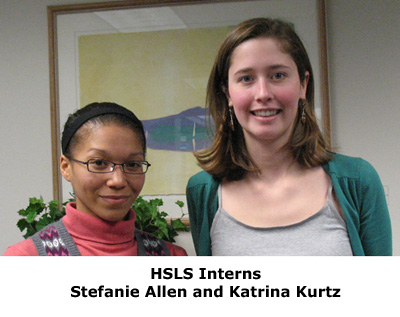
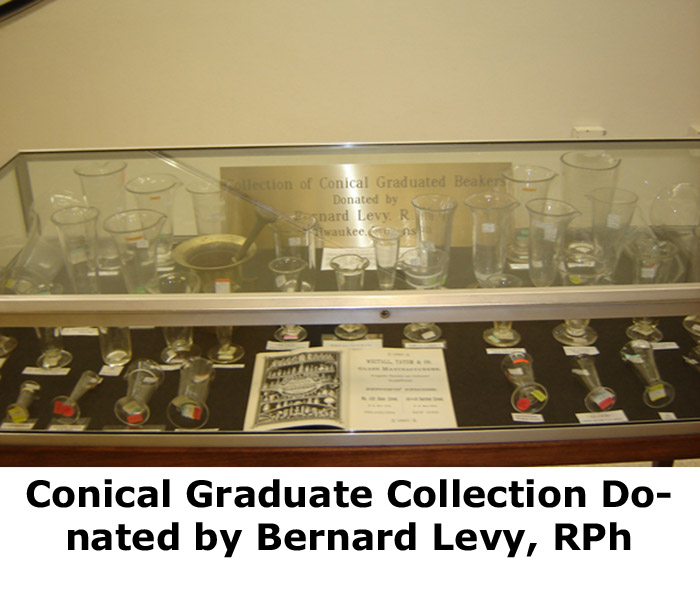 Glistening conical glass graduates from the School of Pharmacy’s Elmer H. Grimm, Sr. Pharmacy Museum are now on display in the lobby of Falk Library of the Health Sciences. Varying in size from a 50 minim graduate to one of 32 ounces, the oldest is one with the bottom marked “HODGSONS PATENT FEB.18, 1862.” A conical graduate is a glass cylinder or beaker, with graduation lines and markings to measure the volume of liquid, and in the past, has been the most used tool of the pharmacist in filling prescriptions.
Glistening conical glass graduates from the School of Pharmacy’s Elmer H. Grimm, Sr. Pharmacy Museum are now on display in the lobby of Falk Library of the Health Sciences. Varying in size from a 50 minim graduate to one of 32 ounces, the oldest is one with the bottom marked “HODGSONS PATENT FEB.18, 1862.” A conical graduate is a glass cylinder or beaker, with graduation lines and markings to measure the volume of liquid, and in the past, has been the most used tool of the pharmacist in filling prescriptions. HSLS offers classes on database searching, software applications such as Adobe Photoshop, bibliographic management, molecular biology and genetics, and library orientations. For more information visit the online
HSLS offers classes on database searching, software applications such as Adobe Photoshop, bibliographic management, molecular biology and genetics, and library orientations. For more information visit the online 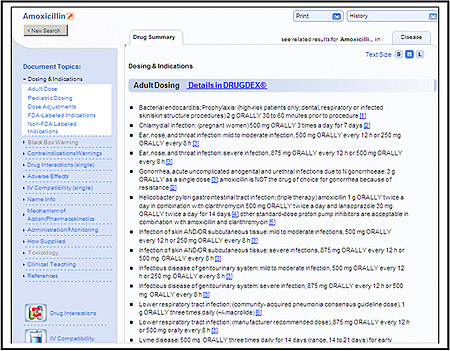
 The last day of operation for the venerable Western Psychiatric Institute and Clinic (WPIC) Library was December 19, 2008. Closing the WPIC Library is especially poignant for me, as I began my professional career in that library and served as its director from 1985 to 1995. The library was well-known in the local and national mental health community as a comprehensive collection with innovative services for professionals as well as patients and their families.
The last day of operation for the venerable Western Psychiatric Institute and Clinic (WPIC) Library was December 19, 2008. Closing the WPIC Library is especially poignant for me, as I began my professional career in that library and served as its director from 1985 to 1995. The library was well-known in the local and national mental health community as a comprehensive collection with innovative services for professionals as well as patients and their families.